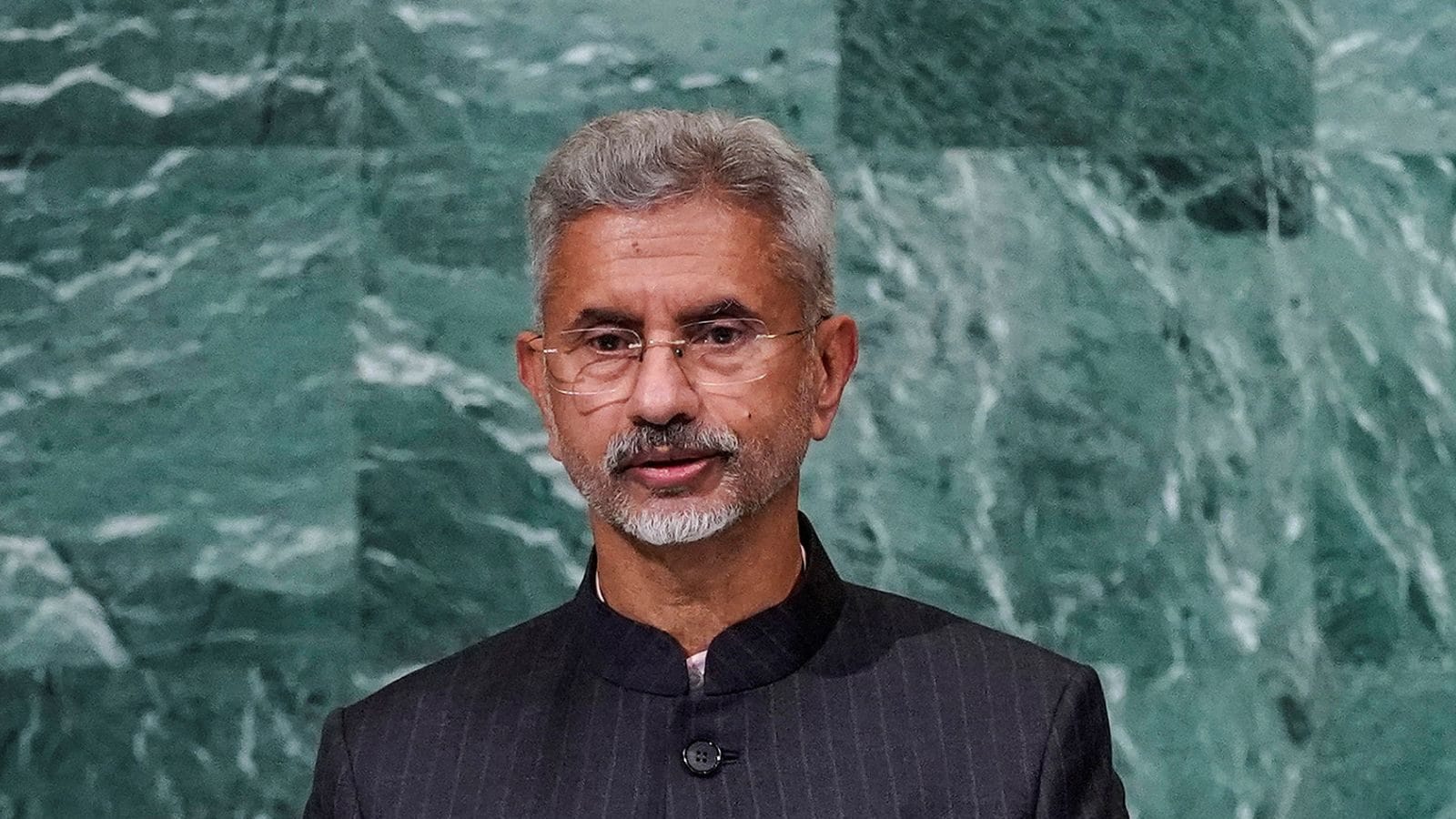External Affairs Minister S Jaishankar on Thursday reminded Pakistan about former US Secretary of State Hillary Clinton’s “snakes in the backyard” advice and said the world sees Islamabad as the “epicenter of terrorism”. Giving another piece of advice to the neighboring country, Jaishankar asked Pakistan to be a “good neighbor” and contribute to economic growth and progress development the way other countries do.
Speaking at UN Headquarters, Jaishankar said, “A decade ago, Hillary Clinton during her visit to Pakistan said that if you keep snakes in your backyard you can’t expect them to bite only your neighbors, eventually they will bite the people who keep them in the backyard. Pakistan is not good at taking good advice. The world today sees them as the epicenter of terrorism.”
The minister referred to Clinton’s 2011 remark against Pakistan where she had demanded greater cooperation from the country to “squeeze” the Haqqani network responsible for attacks in Afghanistan and had said that Islamabad could not keep “snakes” in its backyard to strike its neighbors. “It’s like that old story – you can’t keep snakes in your backyard and expect them only to bite your neighbors. Eventually, those snakes are going to turn on whoever has them in the backyard,” Clinton had said during a joint news conference with the then-foreign minister Hina Rabbani Khar.
On a question related to terrorism on Pakistan’s soil, Jaishankar said, “You are asking the wrong minister when you say how long will we do this. There are ministers in Pakistan who can tell how long Pakistan intends to practice terrorism. World is not stupid. The World is not forgetful and the world does increasingly call out countries and organisations and people who indulge in terrorism. You are not going to confuse anybody anymore. People have figured it out. My advice is to clean up your act and try to be good neighbour. Please try and contribute to what the rest of the world is trying to do today which is economic growth and progress development.”
#WATCH |…They’re ministers in Pakistan who can tell how long Pakistan intends to practice terrorism. World isn’t stupid, it increasingly calls out countries, orgs indulging in terrorism…my advice is to clean up your act & try to be good neighbour:EAM S Jaishankar at New York pic.twitter.com/BJYmNcb2Oj— ANI (@ANI) December 15, 2022
Before this, Jaishankar told the UN Security Council that the “contemporary epicenter of terrorism” remains very much active as he lamented that evidence-backed proposals to blacklist terrorists are put on hold without adequate reason, in a veiled attack on China and its close ally Pakistan.
Jaishankar, who presided over the ‘UNSC Briefing: Global Counterterrorism Approach: Challenges and Way Forward’, described terrorism as an existential threat to international peace and security and said it knows no borders, nationality, or race.
“The threat of terrorism has actually become even more serious. We have seen the expansion of Al-Qaida, Da’esh, Boko Haram and Al Shabab and their affiliates,” he said in his address to the 15-nation Council.
Jaishankar, speaking in his national capacity, said that “at the other end of the spectrum are ‘lone wolf’ attacks inspired by online radicalisation and biases. But somewhere in all of this, we cannot forget that old habits and established networks are still alive, especially in South Asia. The contemporary epicentre of terrorism remains very much active, whatever gloss may be applied to minimise unpleasant realities.” He was apparently referring to Pakistan, which is accused by its neighbours of harbouring terrorists and providing safe havens to several terrorist groups like al-Qaida, Lashkar-e-Taiba and Taliban.
Highlighting specific challenges with which the counter-terrorism architecture is currently grappling, Jaishankar stressed the need of addressing double standards in countering terrorism, leading to concerns of politicisation.
“Uniform criteria are not applied to sanctioning and prosecuting terrorists. It would seem sometimes that the ownership of terrorism is more important than its actual perpetration or its consequences,” he said.
Jaishankar said that the working methods of relevant mechanisms is also a subject of legitimate concern and debate.
“At one level, we have seen protections that come close to justification. Then, there are evidence-backed proposals that are put on hold without assigning adequate reason. Conversely, there has even been recourse to anonymity so as to avoid taking ownership of untenable cases,” he said.
His remarks were a strong reference to repeated holds and blocks on proposals by India to blacklist terrorists based on Pakistani soil, in the UN Security Council’s sanctions committee by veto-wielding permanent member China.
In the past five months, China, a permanent, veto-wielding member of the UN Security Council, has put holds on as many listing proposals made by India and the US to designate Pakistan-based terrorists under the Council’s 1267 Al Qaeda Sanctions Committee regime.
“We cannot let another ‘9/11 of New York’ or ’26/11 of Mumbai’ happen again,” Jaishankar said, asserting that combating terrorism is a battle in which there is no respite. “The world cannot afford attention deficit or tactical compromises. It is most of all for the Security Council to lead the global response in this regard.” Highlighting four specific challenges with which the counter-terrorism architecture is currently grappling, Jaishankar pointed to the issue of terror financing and State culpability, whether by commission or omission.
“The world may no longer be willing to buy the justifications and cover ups as in the past. Through bitter experience, we know that terror is terror, whatever the explanation. The question now arises as to the responsibilities of the state from whose soil such actions are planned, supported and perpetrated,” he said.
(with inputs from PTI)
Read all the Latest India News here


